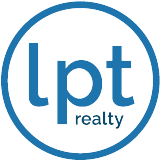First Time Home Buyer Tips

Purchasing your first home is a monumental milestone, often filled with a mix of excitement and anxiety. Navigating the real estate market can be daunting, especially for first-time buyers. However, with the right tips and guidance, you can make informed decisions that will lead to a successful home purchase. Here are some essential tips for first-time home buyers, focusing on both the buyer's and seller's perspectives.
**Understand Your Budget**
The first step in the home-buying process is understanding your budget. This involves more than just knowing how much you can afford for monthly mortgage payments. Take into account other expenses such as property taxes, homeowners insurance, maintenance costs, and potential Homeowners Association (HOA) fees. It's also wise to get pre-approved for a mortgage to know exactly how much you can borrow. This not only helps in setting a realistic budget but also makes you a more attractive buyer to sellers.
**Research the Market**
Before diving into the home-buying process, spend some time researching the real estate market in your desired area. Look at recent sales data to understand property values and trends. Knowing whether you're in a buyer's or seller's market can significantly impact your negotiation strategy. In a seller's market, homes sell quickly and often above asking price, whereas in a buyer's market, you may have more room to negotiate.
**Choose the Right Real Estate Agent**
A knowledgeable real estate agent can be an invaluable asset for first-time home buyers. They can provide insights into neighborhoods, help you find homes that meet your criteria, and guide you through the negotiation process. When choosing an agent, look for someone with experience in the local market and positive reviews from previous clients.
**Make a List of Must-Haves and Nice-to-Haves**
It's easy to get carried away when looking at homes, so it's important to distinguish between your must-haves and nice-to-haves. Must-haves are non-negotiable features like the number of bedrooms or proximity to work or school. Nice-to-haves are features that would be great but aren't deal-breakers if absent. This list will help you stay focused during your search and prevent you from getting swayed by properties that don't meet your essential needs.
**Be Prepared to Compromise**
While it's important to have a clear idea of what you're looking for in a home, be prepared to compromise on certain aspects. The perfect home rarely exists within one's budget constraints, so flexibility is key. Prioritize your must-haves but remain open-minded about other features.
**Conduct Thorough Inspections**
Once you've found a potential home, conduct thorough inspections before making any commitments. Hire a professional inspector to check for structural issues, plumbing problems, electrical faults, and other potential red flags. Understanding the condition of the property can save you from costly repairs down the line and give you leverage during negotiations.
**Understand Seller Motivations**
Understanding why the seller is moving can provide valuable insights during negotiations. If they need to move quickly due to job relocation or other personal reasons, they might be more willing to negotiate on price or closing terms. Conversely, if they're not in a hurry to sell, they might hold out for their asking price.
**Negotiate Wisely**
Negotiation is an art form in real estate transactions. Use your research on comparable properties and market conditions as leverage during negotiations. Don't be afraid to ask for concessions such as covering closing costs or making necessary repairs before closing.
**Plan for Closing Costs**
Closing costs are often overlooked by first-time buyers but can add up quickly—typically ranging from 2% to 5% of the home's purchase price. These costs include fees for appraisals, inspections, title insurance, and attorney services among others. Make sure you're financially prepared for these additional expenses.
In conclusion, buying your first home involves careful planning and strategic decision-making. By understanding your budget, researching the market, choosing the right real estate agent, making informed compromises, conducting thorough inspections, understanding seller motivations, negotiating wisely, and planning for closing costs—you'll be well-equipped to navigate this exciting journey successfully.
Categories
Recent Posts





